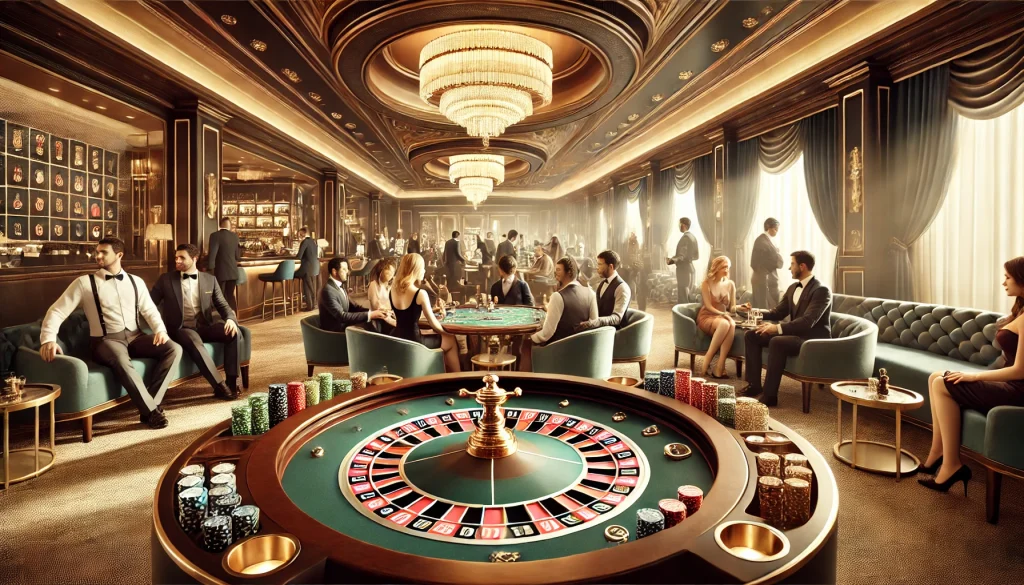
Why People Are Drawn to Gambling: Psychological Factors Influencing Bets
Gambling has long been a captivating activity for people across the world. Whether it’s spinning the roulette wheel, trying their luck at poker, or betting on sports, millions find themselves drawn to the allure of uncertainty and potential rewards. But what is it that makes gambling so universally appealing? This article explores the psychological factors that influence why people gamble, offering a deeper understanding of the emotions and behaviours that drive this age-old pastime.
Understanding the Appeal of Gambling
Gambling has been a captivating pastime for centuries, offering a blend of suspense, excitement, and the hope of winning big. But what lies beneath this universal allure? For many, gambling is not just about the possibility of financial gain but also about the psychological and emotional experiences it brings. This activity taps into several key aspects of human behaviour, from the thrill of risk-taking to the neurological rewards of uncertainty. By delving deeper, we can uncover the factors that make gambling such an irresistible draw for millions worldwide.
One of the most significant reasons behind gambling’s popularity is its ability to engage our primal instincts. Humans are naturally drawn to activities that involve chance and unpredictability, as they trigger ancient survival mechanisms. Over time, these instincts have evolved into a fascination with games of risk and reward. Coupled with the technological advancements that have made gambling more accessible than ever, this innate tendency has transformed the industry into a global phenomenon.
The Role of Dopamine in Gambling
At the heart of gambling’s appeal is the brain’s reward system. When individuals gamble, the brain releases dopamine, a neurotransmitter associated with pleasure and satisfaction. This chemical reaction is not limited to winning; the anticipation of a potential win is enough to stimulate the same response. This explains why people continue to play even after experiencing losses. The unpredictability of outcomes heightens the dopamine release, creating a cycle of excitement and engagement.
Moreover, gambling introduces an element of novelty that the brain finds hard to resist. Each spin of the roulette wheel or shuffle of the cards is a new experience, keeping players hooked. The intermittent nature of rewards, where wins occur unpredictably, is especially effective at reinforcing gambling behaviour. This phenomenon, known as variable ratio reinforcement, is also used in other industries, such as video games and social media, to maintain user engagement.
The Thrill of Risk and Reward
Taking risks is a fundamental aspect of human nature. From an evolutionary perspective, risk-taking was essential for survival, whether it involved hunting for food or exploring new territories. In modern times, gambling has become a socially acceptable way to satisfy this innate desire. The adrenaline rush that comes with risking money on an uncertain outcome is a key factor in its appeal.
Winning a bet, no matter how small, provides a sense of accomplishment and validation. This feeling is amplified by the environment in which gambling typically takes place. Casinos, for instance, are designed to heighten the senses with bright lights, lively sounds, and a vibrant atmosphere. These elements create a sensory overload that keeps players engaged and eager to continue.
Social and Cultural Influences
Beyond individual psychology, social and cultural factors also play a significant role in gambling’s popularity. In many societies, gambling is seen as a communal activity, bringing people together in shared excitement. Whether it’s a poker night with friends or a lively evening at the casino, the social aspect of gambling adds another layer of appeal.
Additionally, cultural attitudes towards gambling can influence participation rates. In some cultures, gambling is considered a harmless form of entertainment, while in others, it carries a stigma. Marketing and media representations also shape public perceptions, often glamorizing the lifestyle associated with successful gamblers. This portrayal can inspire individuals to try their luck, hoping to achieve similar success.

The Psychological Concept of Escapism
In today’s fast-paced world, many people turn to gambling as a form of escapism. The immersive nature of gambling allows players to momentarily disconnect from their daily stresses and focus entirely on the game. This temporary escape can be both comforting and addictive, especially for those dealing with personal or professional challenges.
The design of gambling platforms further enhances this escapism. Online casinos, for example, offer round-the-clock access and a wide variety of games, creating a virtual environment where players can lose track of time. The anonymity provided by online gambling also adds to its appeal, allowing individuals to engage without fear of judgment.
The Impact of Personal Beliefs
Personal beliefs and misconceptions about gambling significantly influence behaviour. Many players hold onto the illusion of control, believing that their actions can affect the outcome of games that are largely based on chance. This belief keeps them engaged, as they feel empowered to influence their fate. Similarly, superstitions and rituals, such as wearing a “lucky” piece of clothing or following specific betting patterns, contribute to the overall experience.
For others, gambling is tied to a sense of optimism and hope. The idea of a life-changing win, no matter how unlikely, is enough to keep them coming back. This optimism is often reinforced by stories of jackpot winners, creating a sense of possibility that fuels continued participation. Understanding these psychological factors is key to addressing the challenges associated with gambling, including its potential for addiction.
